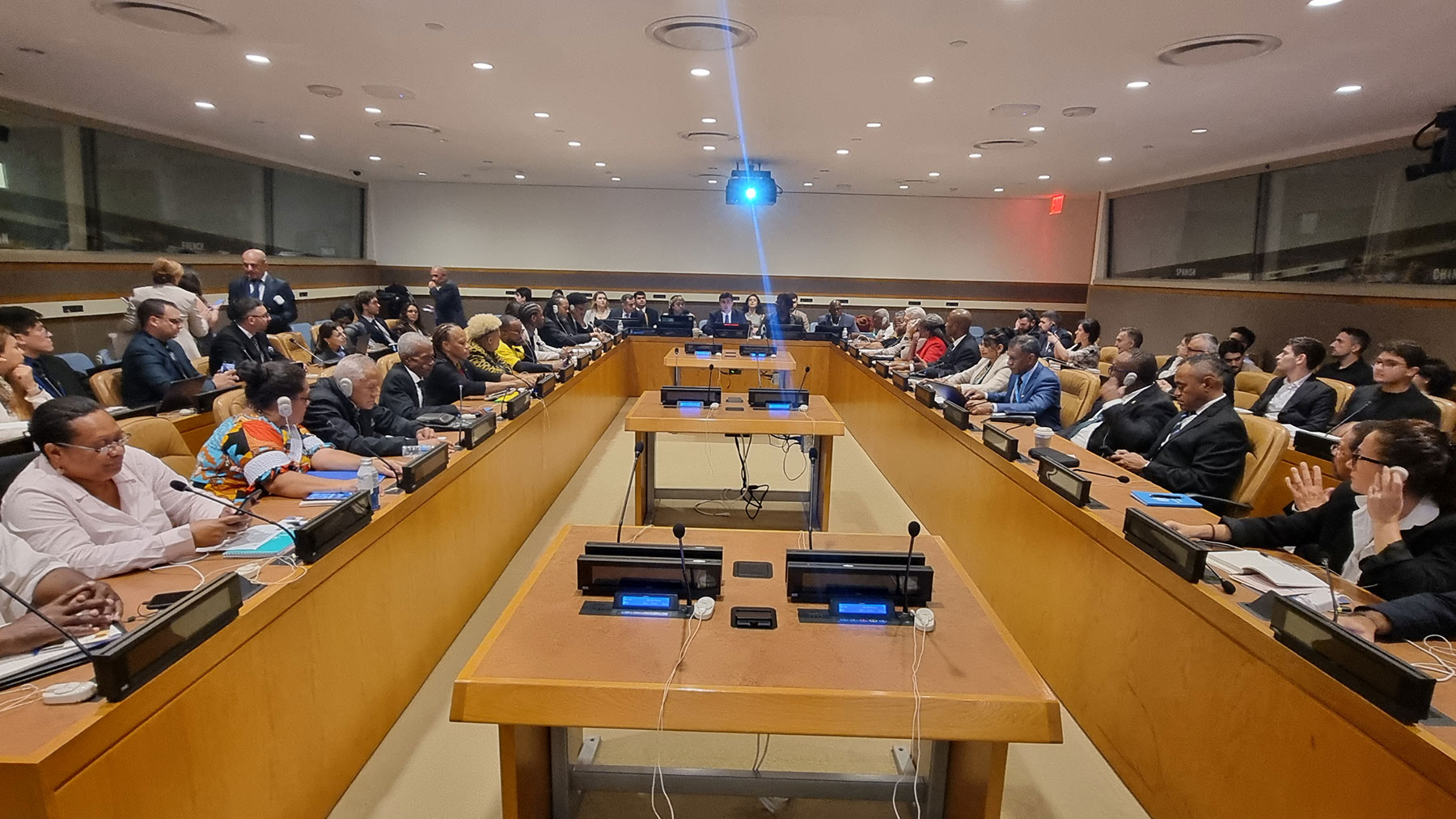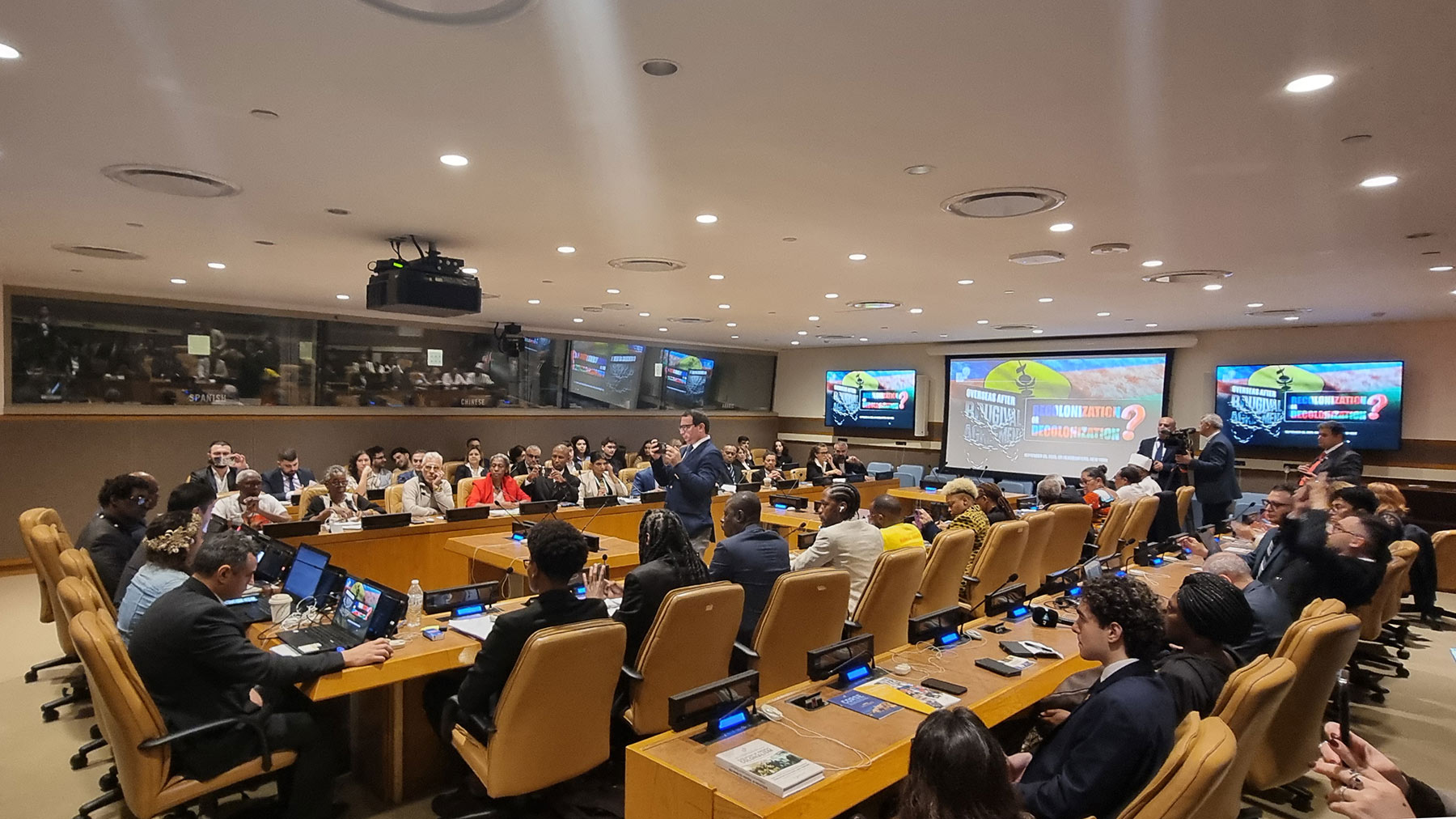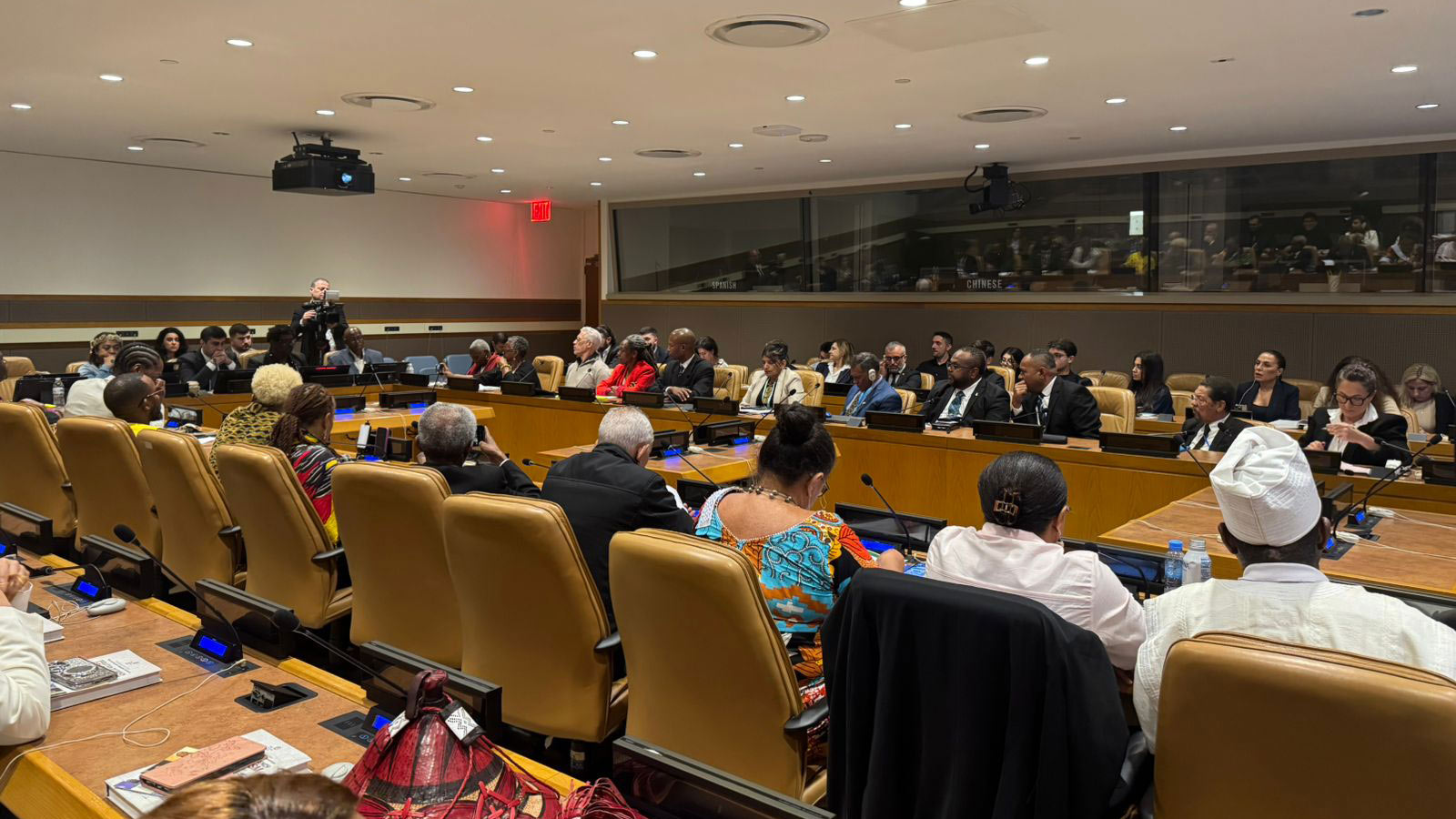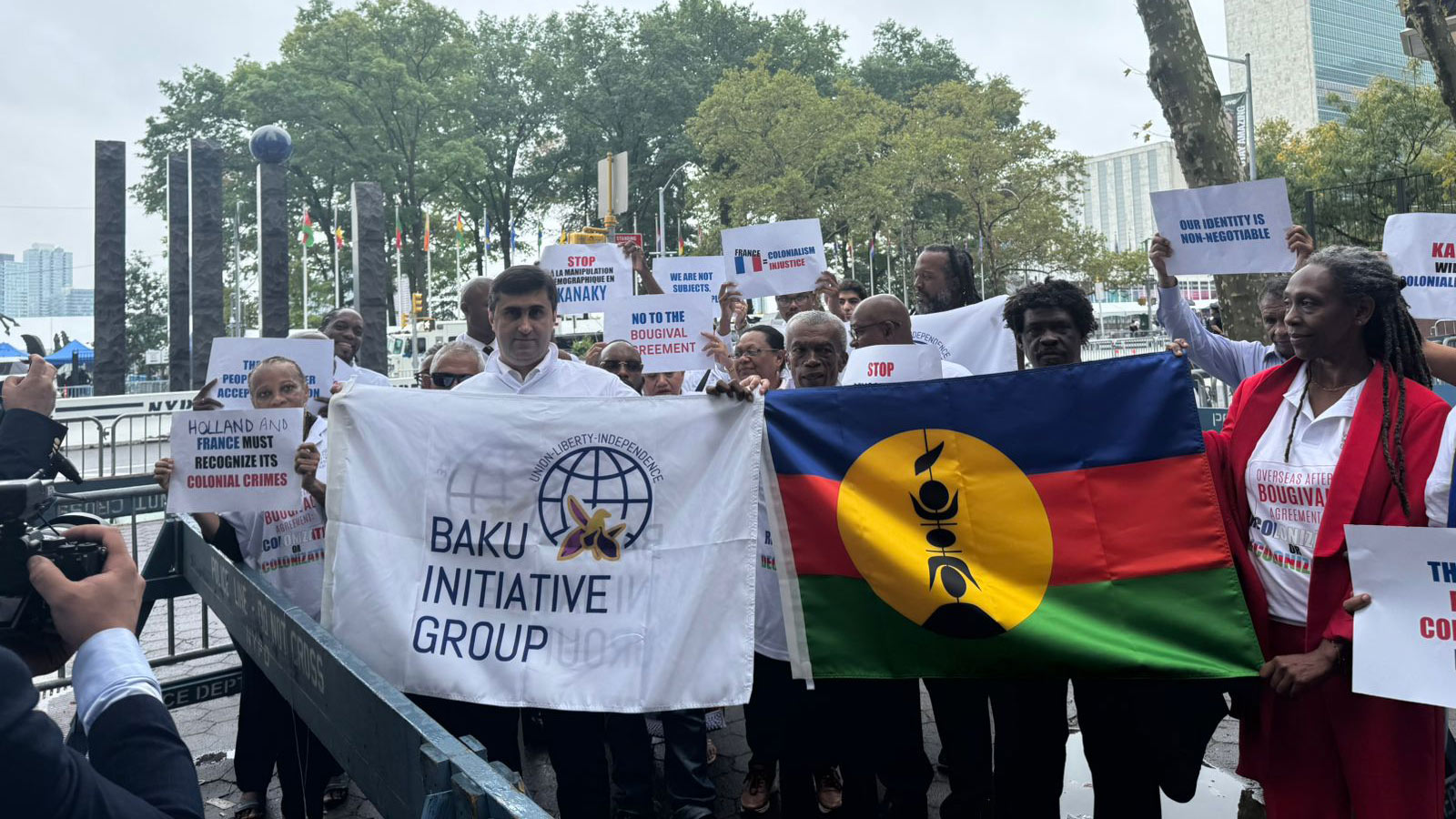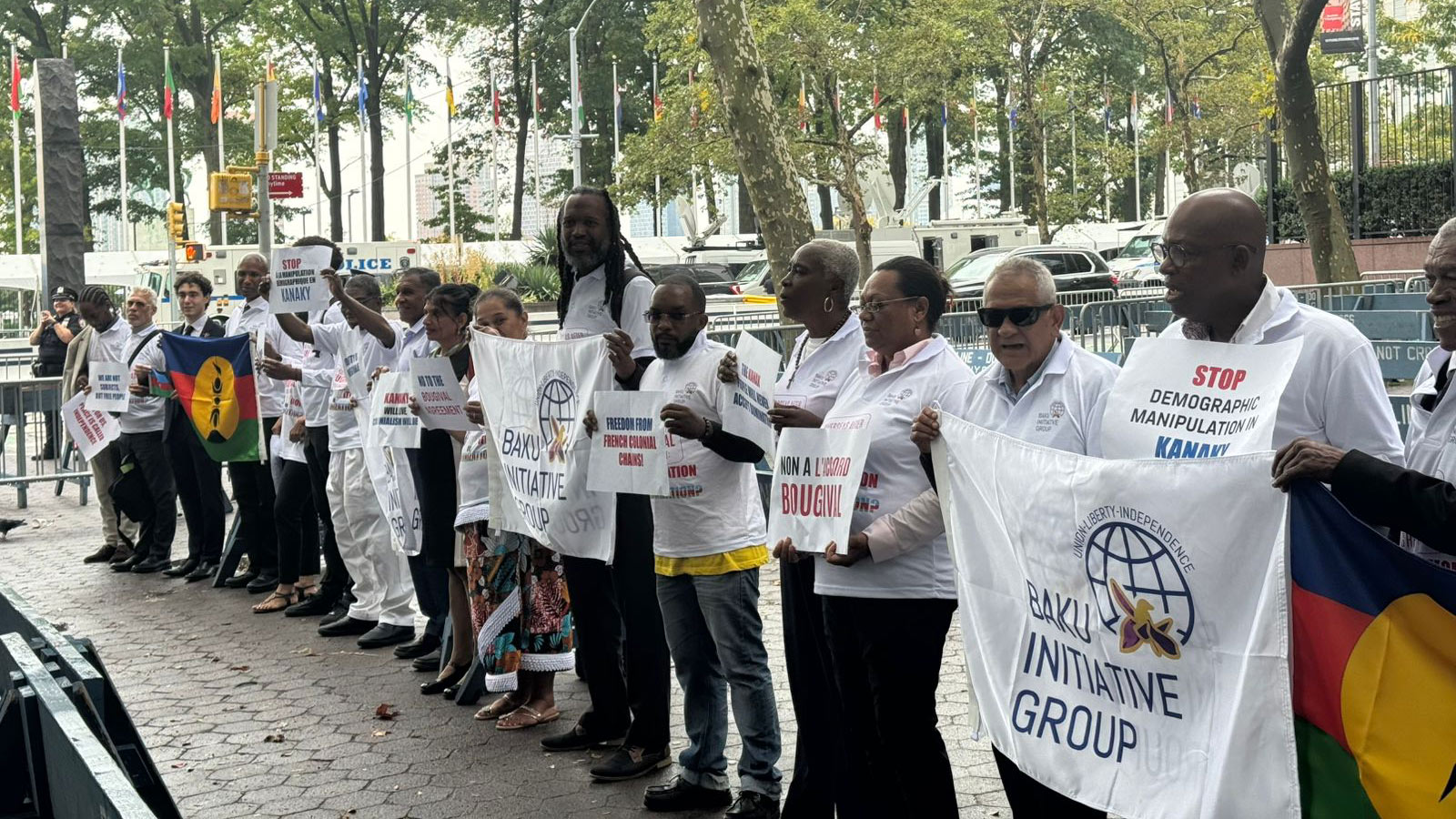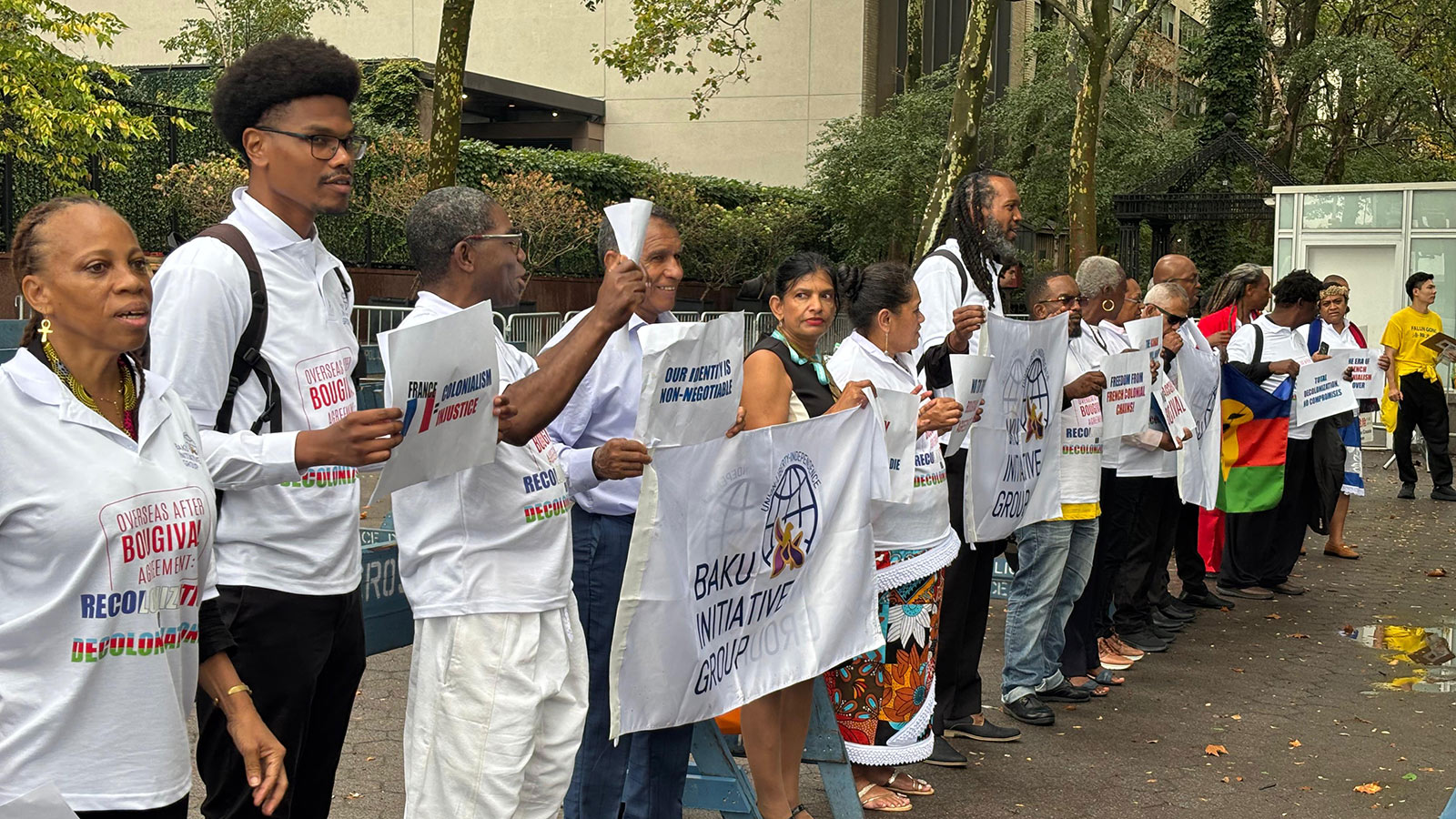Latest events
International conference dedicated to the repressive policy of the Ind...
19/01/2026International conference dedicated to Belgian colonialism was convened...
01/11/2025Baku Initiative Group (BIG) organized an international conference enti...
25/09/2025Towards the Decolonization of Guadeloupe! Challenges and Prospects
25/07/2025Constructing Empires: Colonial Ideologies and Realities
03/06/2025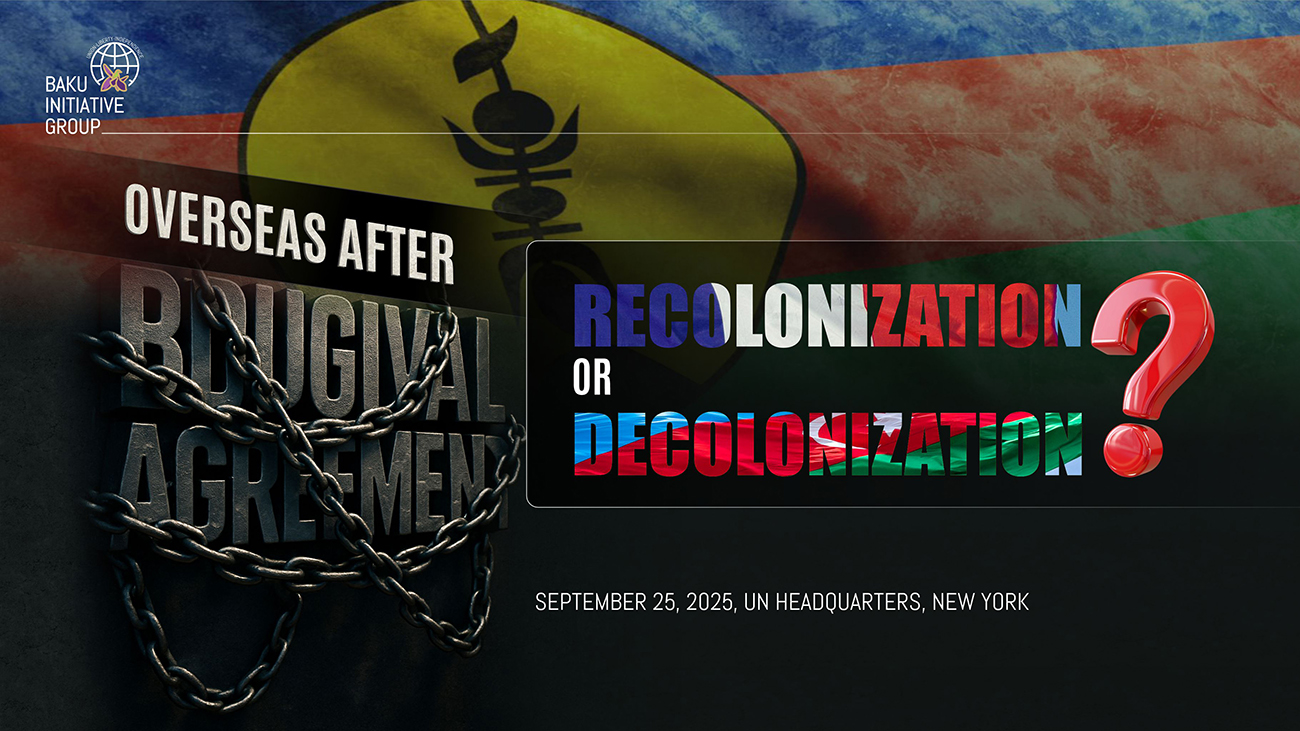
25/09/2025
Baku Initiative Group (BIG) organized an international conference entitled “Overseas Territories after the Bougival Agreement: Recolonization or Decolonization?”
September 25, 2025, Baku Initiative Group organized an international conference entitled “Overseas Territories after the Bougival Agreement: Recolonization or Decolonization?” at the United Nations Headquarters in New York City, convened within the framework of the 80th session of the UN General Assembly.
The conference brought together leaders of independence movements from France’s overseas territories, including Kanaky (New Caledonia), Guadeloupe, Martinique, Réunion, Mahoi Nui (French Polynesia), and French Guiana, as well as representatives from the Netherlands’ colonial territories, such as Bonaire, Aruba, and Sint Maarten. Additionally, it featured the participation of international decolonization experts and delegates from the International Decolonization Front, founded in Baku.
The conference examined the true nature of the Bougival Agreement, presented by France as promoting “stability and a shared future,” and evaluated its provisions in comparison with those of the Matignon and Nouméa Accords, which were designed to facilitate New Caledonia’s path to independence.
At the event, representatives of the Kanak people provided a detailed explanation to the international community regarding the rationale behind their rejection of the Bougival Agreement.
The conference also addressed the future of Kanaky (New Caledonia) and other overseas territories in the post-Bougival period, the issue of France’s unfulfilled obligations before the United Nations, which have remained unimplemented for years, and the need to keep these matters on the agenda of international organizations. Additionally, discussions focused on pathways to achieving genuine decolonization processes and the importance of undertaking coordinated steps in this regard.
Upon the conclusion of the conference, a collective declaration was formally adopted.
Subsequently, representatives from the colonial territories conducted a peaceful protest in front of the United Nations office.


